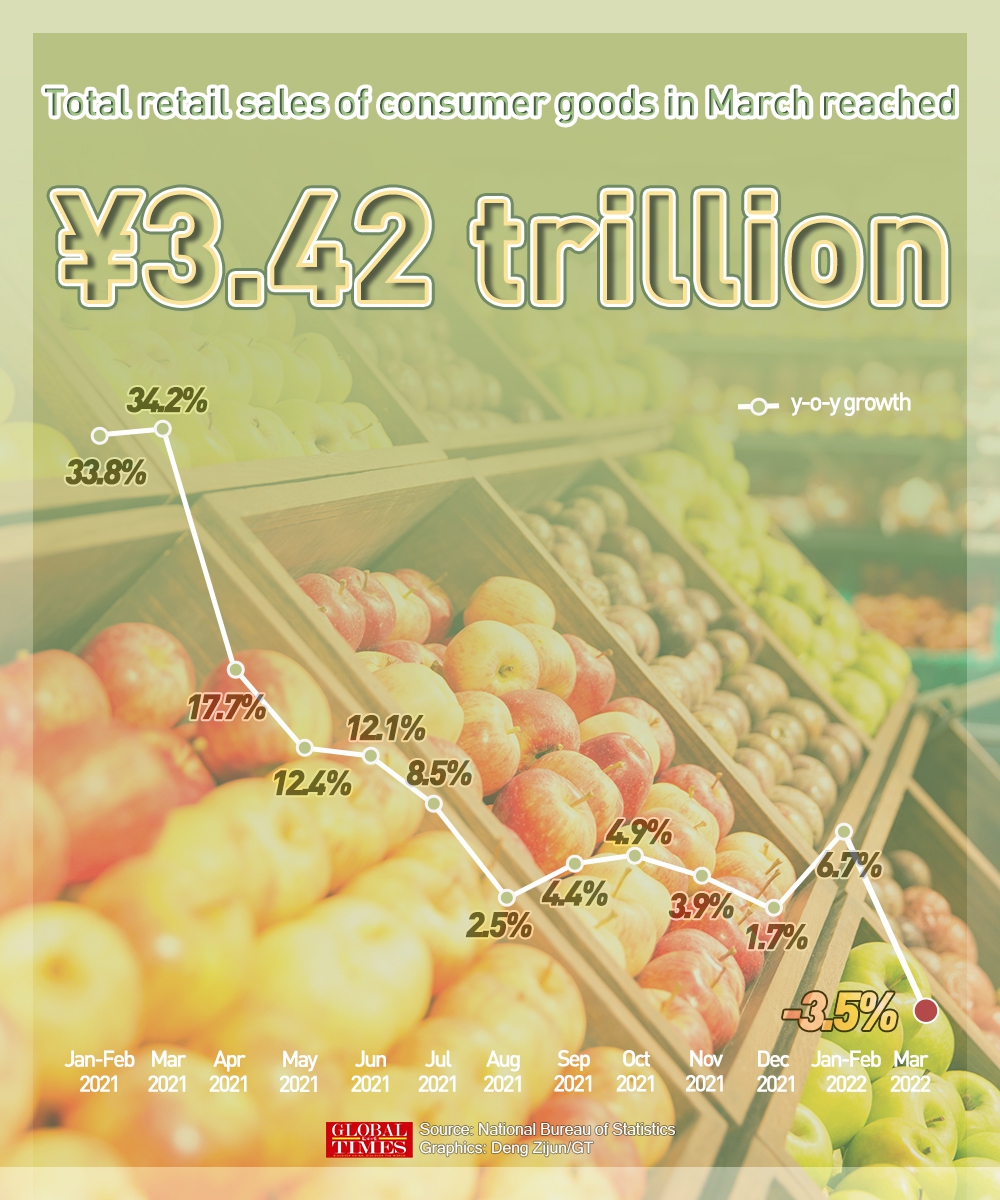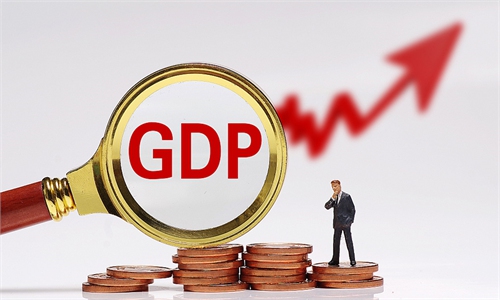China beefs up efforts to boost consumption after 3.5% drop in retail sales in March

Graphic:Deng Zijun/GT
China's retail sales, a main gauge of consumption, fell 3.5 percent year-on-year in March, the first contraction since August 2020, a drop that analysts said was within expectations as recent COVID-19 flare-ups restricted consumption in some major areas, including Shanghai and the Yangtze River Delta.
Despite the sluggish performance in the past month, which is expected to continue in April as the epidemic lingers, experts believe consumption will rebound as official move to beef up efforts to facilitate market flows and stimulate consumption, a main economic growth driver.
First-quarter retail sales stood at 10.87 trillion yuan ($1.7 trillion), up 3.3 percent year-on-year, data from the National Bureau of Statistics (NBS) showed on Monday. Online sales grew 8.8 percent to 2.53 trillion yuan, accounting for 23.2 percent of total retail sales.
However, in March, retail sales dropped 3.5 percent year-on-year to 3.42 trillion yuan, down 1.93 percent month-on-month, according to the NBS.
During the month, auto sales dropped 7.5 percent year-on-year, sales in the catering sector slid 16.4 percent year-on-year and silver and jewelry sales saw a drop of 17.9 percent year-on-year.
Sales of petroleum products, drugs, food and beverages saw the greatest increases.
Ying Xiwen, deputy director of the Macro-economy Research Center at the Academy of China Minsheng Bank, told the Global Times on Monday that the drop in consumption was within expectations, as the resurgence in new COVID-19 cases in March weighed on domestic consumption.
Outbreaks of Omicron cases have thrown a number of domestic cities into short-term economic uncertainty. Shanghai epidemic situation is particularly concerning as the city acts as one of the leading drivers of the Chinese economy.
In both fighting what could be the toughest battle since the start of the epidemic and ensuring stable economic growth, Chinese officials have recently taken series of boosting measures targeting some pillar industries such as automobiles and home appliances in a bid to ease the downward pressure and support consumption.
The executive meeting of the State Council, the cabinet, held on April 13 pledged to encourage large-scale consumption such as automobiles and home appliances while asking local governments not to add new automobile purchase restrictions.
Statistics show that home appliances and automobiles account for one-fourth of China's retail sales, with huge potential yet to be unleashed.
Officials have also vowed to speed up the construction of key projects, including those related to consumption, and increase the scope of special-purpose debt support for such projects.
According to statistics from financial data platform Choice, as of Sunday, 1.31 trillion yuan of new special-purpose bonds had been issued in various regions so far this year, with some of the proceeds to be invested in the construction of consumption-related infrastructure.
While the government stimulus policies give an important and timely boost to the sluggish market, experts noted that the consumption rebound still depends heavily on the epidemic situation across the country.
"The full-year retail sales growth rate will rely on when the latest outbreak will be brought under control and how anti-epidemic measures will be adjusted," Tian Yun, a Beijing-based economist, told the Global Times on Monday.


